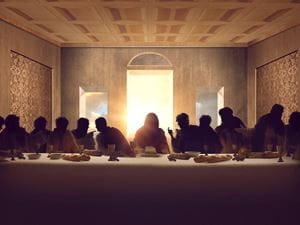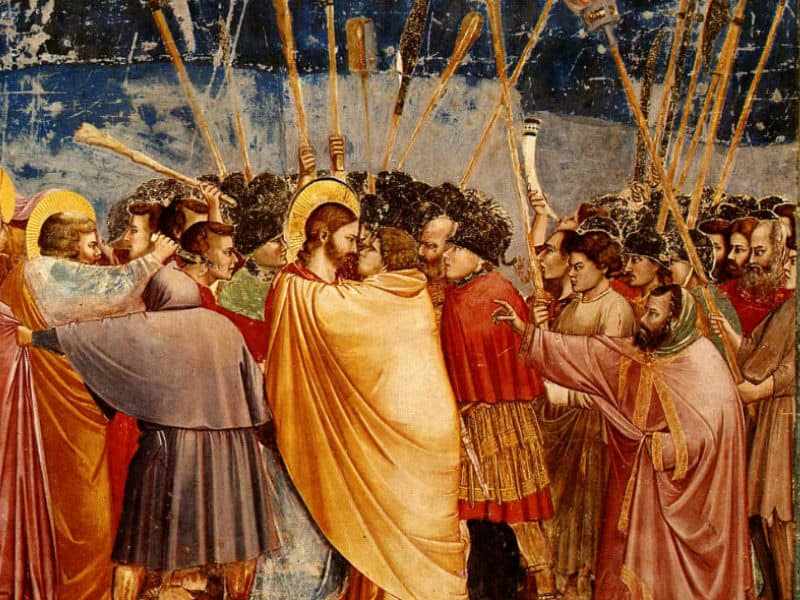
While we know the story of the Last Supper, it is always helpful to discuss the occurrences during that day to further understand and appreciate Christianity and Jesus. Not only did He sacrifice His life for the greater good, but He did not allow hatred to consume Him. Let’s take a look at what happened during the Last Supper so that we can better learn how that day affects how we live today.
Passover.
Passover represented Israel’s escape from bondage in Egypt. In Exodus, the blood of the Passover lamb was painted on the door frames, causing the plague of the firstborn to pass over their houses, sparing the firstborn sons from death. The Last Supper is significant because Jesus showed His disciples He was about to become the Passover Lamb of God.
His blood would open the door to freedom. His followers would exchange slavery for sin and death for eternal life in God’s Kingdom. Jesus transformed the Passover feast into “The Lord’s Supper.” With this supper being Jesus’ last meal on earth, it served as a unique way for everyone to remember Him. This gesture precedes throughout history because Jesus remains the One who ultimately saved all of us.
Communion.
There are three main views regarding the blood and wine during the practice of Communion. The bread and wine consumed during the Last Supper have remained a constant in the Christian community. The bread and wine become the actual body and blood of Christ. Christ’s presence by faith is made spiritual because they are unchanged elements, used as symbols, representing Christ’s body and blood in remembrance of His enduring sacrifice. Jesus reveals that His death is not a surprise. He is aware that He will die, and He can see the bigger picture. His passing away is not about a plan failing or of empty salvation. However, the betrayer is responsible to God for His betrayal. Judas’ actions never fooled God. God is always there, no matter how secretive a sin may appear.
Jesus shared a faithful message.
Jesus’ words about greatness and rule are significant and have lasting importance, especially since they are in the shadow of His death. He wants to remind his followers that no matter how bad the conditions get, a day will come when vindication and authority will prevail. Jesus’ words during the Last Supper help us cope with suffering and remind us that God will always be on our side, no matter how challenging the times may be. All of the disciples share the promise of reward and a place at the table of messianic fellowship.
A genuine gesture.
Jesus and His disciples finished eating when Jesus knelt at the feet of each man and washed their feet. This overwhelming gesture made a lasting impression on the disciples because it expressed pure love but laid a foundational standard of authentic servant leadership. This gesture stands as the model for servitude and leadership amongst Christians today.
They ate unleavened bread.
Many have questioned what type of bread was eaten during the Last Supper. It can be argued that Jesus used unleavened bread during the Passover meal. This fact is of utmost importance since the Last Supper is often thought to have occurred on the 14th day of Nisan during the evening of the Passover, marking the beginning of the Feast of Unleavened Bread.
There is much speculation on general time frames regarding the Last Supper. If “the Passover” means the feast of the Passover lamb, which was eaten on the first day of the feast of unleavened bread, then that would mean the last supper Jesus celebrated with His disciples occurred about 24 hours earlier. Legally, the meal had to be celebrated in Jerusalem. Therefore, they needed a location that was appropriate for the occasion. A lot of preparation went into organizing the supper - the sacrifice of lambs in the temple, cooking them, preparing the place, assembling the side dishes and utensils, and serving the wine.
Hospitality.
The Last Supper signifies the hospitable nature that Christians live by. Like the disciples, Christians serve Jesus and his teachings. All in all, the Last Supper signifies the hospitable nature of Christians and the need to serve and sacrifice for others.
Jesus knew that His death was imminent. Instead of spending His time with others, He chose to spend His time eating His last meal with His disciples and even took the time to wash His disciples’ feet after their meal, displaying an attitude of genuine leadership and servanthood. Although He knew His death was impending, Jesus wasn’t afraid because He knew where He was going and that His sacrifice would help so many others.

